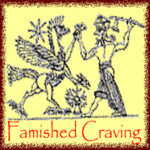Dante’s Devine Comedy
With the exception of the gospels, little in Western literature has the evocative power and transforming effect of Dante’s Divine Comedy. Gil Bailie, in these presentations, analyzes in detail Dante’s Inferno – his brilliant poetic tour of sin and its inexorable consequences; Purgatorio – continuing with Dante and his guide Vergil as they climb the purgatorial mountain to meet at its summit Beatrice, his beloved; and Paradiso – entering the earthly paradise, having been purged of sin, Dante undergoes transformations culminating in the beatific vision of the Godhead.
(Note: the audio quality of some of the cassette tapes these audio files were made from were less than optimal. We have done some editing to mitigate the worst audio deficiencies.)
Introduction to Dante: Romance Mythology
Gil Bailie’s introduction to Romance Mythology is a three part series that was recorded in 1986 when Gil’s interpretive lens was primarily provided by Carl Jung. These presentations were intended as an introduction to Dante’s Divine Comedy and betray no influence from René Girard’s mimetic theory. However, it is clear that the transcendent longing he describes at the transformative heart of the romantic myth points beyond human desires to a divine union seen from a Christian perspective.
In the 11th century something new sprouted in the courts of Europe and in the songs of the troubadours. The affair of Heloise and Abelard gave voice to an experience of passionate romance that has come to permeate literature and lives around the world. This experience was taken up by Dante, elevated and transformed into a vision of love and the beloved within the Trinitarian mystery— displaying the gravitational power of crucified love which Gil Bailie examines in his 2016 book God’s Gamble.
Reflections on Dante’s Inferno
Mr. Bailie infuses his reflections on Dante’s poem with echoes from poems that help shed light on the path ahead. The first is Leonard Cohen’s “The Only Poem”:
This is the only poem I can read
I am the only one can write it
I didn’t kill myself when things went wrong
I didn’t turn to drugs or teaching
I tried to sleep but when I couldn’t sleep
I learned to write, I learned to write what might be read
on nights like this by one like me
Reflections on Dante’s Purgatorio
With the exception of the gospels, nothing in Western literature has the evocative power and transforming effect of Dante’s Divine Comedy. Gil Bailie, in these presentations, analyzes in detail Dante’s Purgatorio; continuing with Dante and his guide Virgil as they climb the purgatorial mountain to meet at its summit Beatrice, his beloved.
Reflections on Dante’s Paradiso
With the exception of the gospels, nothing in Western literature has the evocative power and transforming effect of Dante’s Divine Comedy. Gil Bailie, in these presentations, analyzes in detail Dante’s Paradiso; culminating in Dante’s experience of the beatific vision and the union of will and desire.



